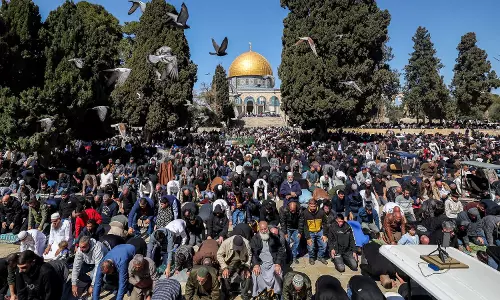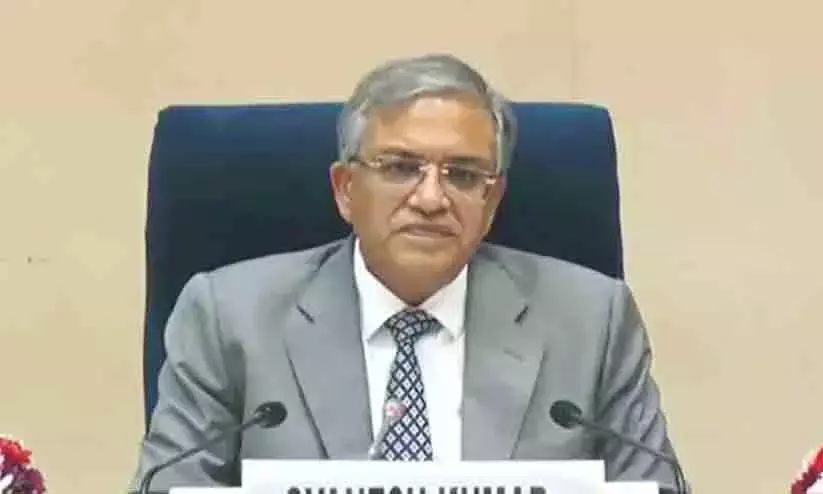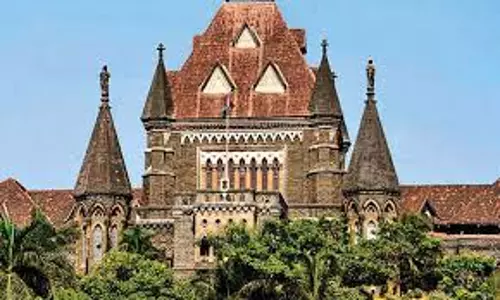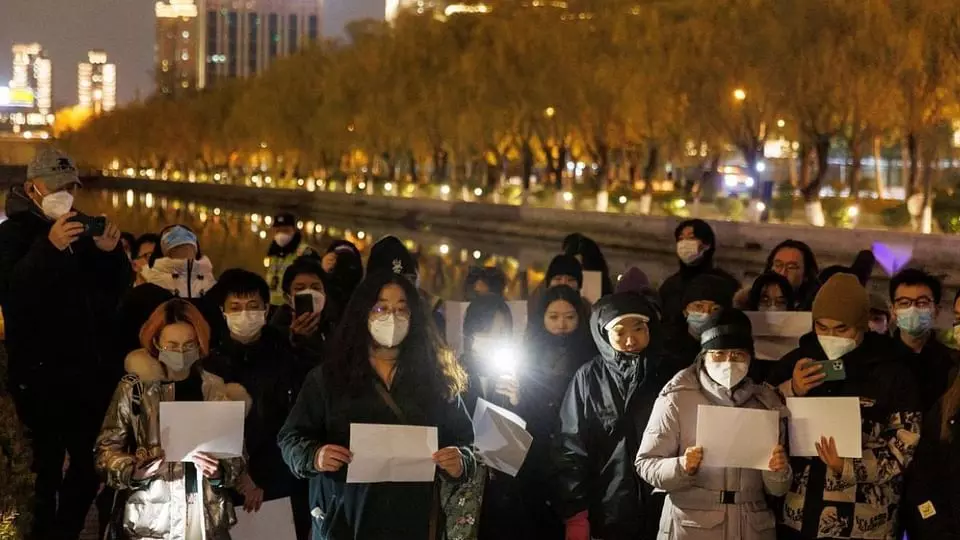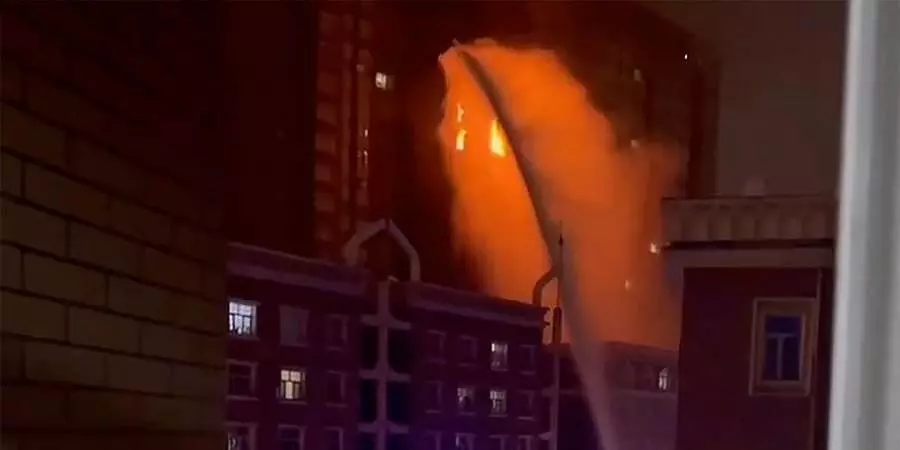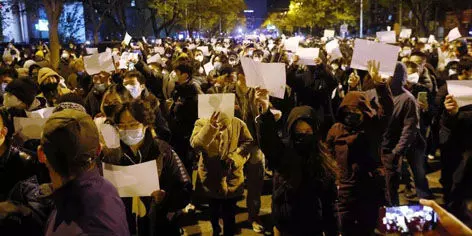
Message of the Chinese protests
text_fieldsIt is natural that the anti-government protests in various cities in China and the high level of public anger against President Xi Jinping have attracted the world's attention. There were strong protests against the government's Covid policy in about twenty cities, including the capital Beijing, the commercial centre Shanghai, Zhengzhou, Urumqi, Wuhan and Guangzhou. Xi's 'Zero Covid' policy and strict lockdown measures have invited widespread opposition. It was during this time that a fire in a high-rise building in Urumqi, Xinjiang province, killed 10 people, sparking protests by thousands. Protesters clashed with police, including in the capital, Beijing, shouting slogans asking for Xi to step down.
As the epicentre of the Covid-19 outbreak, China has had tight restrictions but the public has generally been cooperative with them. However, people began resisting the restrictions given that the virus is now practically under control and what is present is largely treatable, but the government continues to stick to the stringent rules. President Xi declared even recently at the Communist party congress that the "zero Covid" policy would continue even if he were to retake control of the country. However, the government asserts that if the controls are lifted, 5.8 million people will require treatment in intensive care facilities due to the spread of the disease, as reported by Bloomberg. People's lives have gotten more difficult as a result of the restrictions; shortages of food, fuel, medicine, etc. started right away. The demand for Xi Jinping, who is usually regarded as a strong ruler, to step down increased at that point. The fight for democracy in China's cities was spurred by this demand. It cannot be denied that this is the biggest public movement since the 1989 Tiananmen Square uprising. The leadership should understand from a study of recent Chinese history that the desire for democracy is not something the state can suppress. Although the administration might be certain that it has temporarily muted public opinion, they must be aware that the flames of popular outrage might one day burn free. It is also noteworthy that this time the Chinese government treated the demonstrators with a little bit more tolerance than normal.
When we state that China has an elected president, we also need to take a closer look at the election process. The party's central committee, which consists of 2,300 delegates from 96 million party members out of a population of 140 million, elects the Politburo which in turn appoints the Party Chairman, who is the party leader and the ruler known to the outside world as the Chinese President. The Chairman is the one who rules the country at his will, and the approval of the party normally follows although in theory the decisions are taken collectively; that is the Chinese system. In that regard, i.e. autocratic style of functioning, Xi Jinping has surpassed all previous leaders too. The same is true of destroying freedom and violating human rights. However, as of now, it has shown signs of spiralling out of control.
A Chinese dissident named Li Nanfei was recently arrested in Thailand for illegal immigration, but he had to seek asylum following a one-man public protest of China's repressive regime. His placard read: "His Majesty President Xi, put an end to dictatorship in China! Give the people back their freedom!" In October, a one-man protest by a dissident leader named Peng Lifa on the Beijing Sitong Bridge was also along the same lines tyle. Hong Kong, which has been part of China since 1997 after the British handed over the administration, has enjoyed relative freedoms, but the situation there is gradually becoming similar to China's. China does not allow newspapers or social media to broadcast the will of the people either. Meanwhile, in Chinese cities, advocates for freedom are waving blank white sheets of paper in the air to send a powerful message of democracy to the rest of the world. There are several messages for the Chinese people and the rest of the world on the white blank sheet that they waved symbolically without writing anything on it. These white papers implied without having to say it that the nation should be given the breeze and light of democracy.





